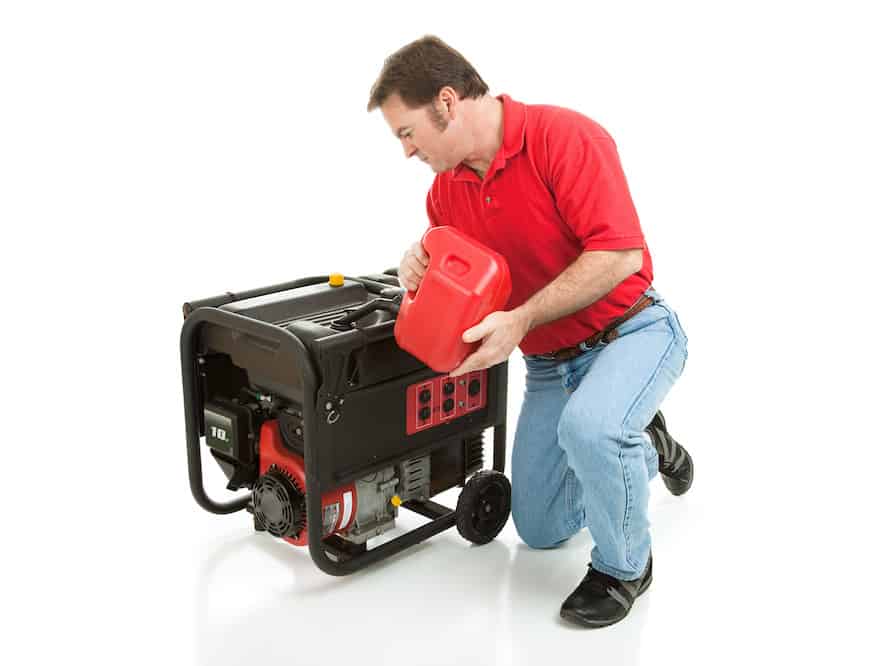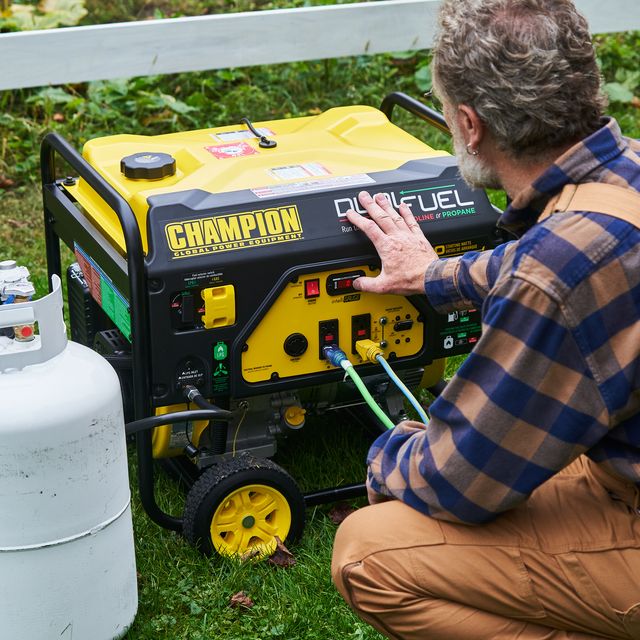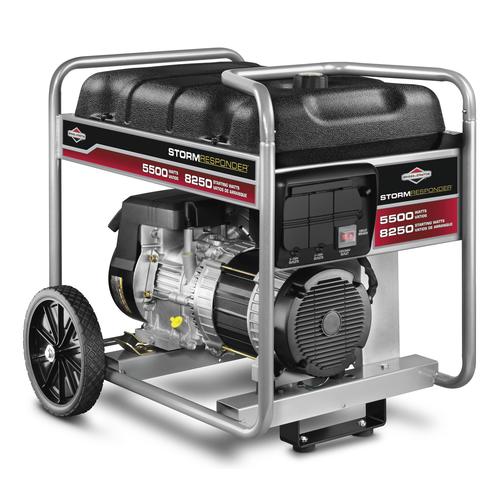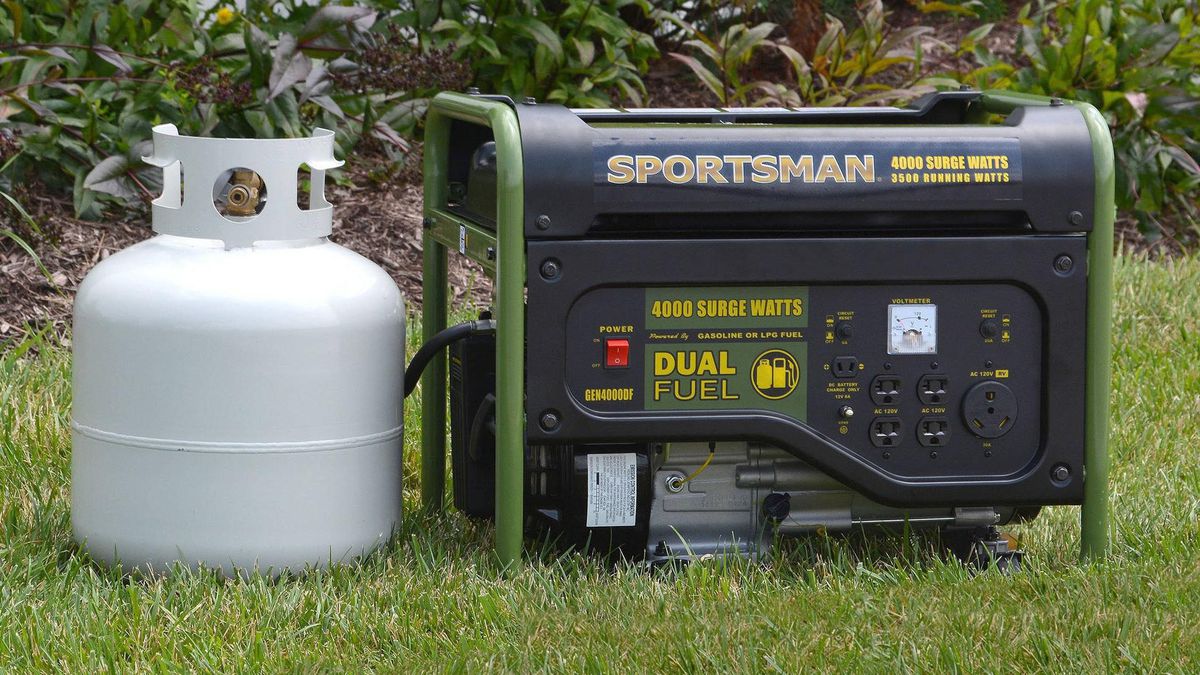Generators have become a need, especially for people living in areas where there are always power outages. Having a generator on hand is necessary in case of a natural disaster or emergency, even if you don’t live in a neighborhood with consistent power outages. But to keep the generator running, you need to know the basics, like how long can a gallon of gas last in a generator.
In today’s article, we’ll go through the basics of a generator.
How Long Does a Gallon of Gas Last in a Generator?
 On average, a gallon of gas will last for about 8 to 9 hours. But typically, it depends upon various other factors such as,
On average, a gallon of gas will last for about 8 to 9 hours. But typically, it depends upon various other factors such as,
- Different generators
- Power output
- Engine size
- Fuel tank
People generally go for gas as it is easily available and less pricey. But as it has its advantages, it also has its disadvantages. Gas is easily flammable and so cannot be stored in large amounts. So, people generally store about 1 to 5 gallons of gas at once in a generator.
When you buy a generator, it’s important to consider how much gas it consumes and how you can save its consumption. Surely you don’t want to be filling up the generator every 1 hour or so.
How to Reduce Generator Gas Consumption?
Sure gas is cheap, but if you have to fill your generator with gallons of gas every hour, then that can become pricey. Here are some tips through which you can reduce your generator’s gas consumption to continue doing your tasks without any disturbances,
-
Servicing Your Generator
If you see your generator working abnormally, take it to a professional to get its service. Your generator acting normally might be a reason for it consuming more gas than necessary. Maintaining your generator can have a significant effect on reducing the consumption of gas.
The experts can also help you pick out the necessary equipment and parts which will complement your generator and stop your generator from requiring maintenance every week.
-
Decrease Generator Usage
Utilizing your generator excessively also results in high gas consumption. People using gas generators for commercial purposes often face this problem.
If you’ve kept your generator for consumption purposes, then also buy an alternate source of power like solar panels.
You can use solar energy to operate small appliances and use your gas generators to operate appliances that may have a heavy load.
-
Using Proper Coolant and Maintenance of Coolant Temperature
 Coolants generally should be used according to a specific environment and conditions. Gas generators usually use rain or freshwater as a coolant for efficient operation.
Coolants generally should be used according to a specific environment and conditions. Gas generators usually use rain or freshwater as a coolant for efficient operation.
The coolant’s temperature should be kept at the right temperature to cool the engine. Incomplete combustion can occur if the coolant’s temperature is kept at a scale below or above the average.
For example, if the coolant is used at a temperature below 0℃, then it can freeze and cause parts of the generators to crack.
-
Removing Carbon Deposits
When gas heats up during combustion, ash carbon polymer is released. This deposit gets stuck with different components of the generator, such as the valve or piston top.
Overtime accumulation of these deposits can lead to excessive use of gas. Have you ever seen black smoke coming out of your generators? Well, the reason for that black smoke is the carbon deposits. If you want to save your money and yourself from pollution, we suggest removing the parts and clean the gas generator thoroughly with the help of mild chemical detergents.
-
Avoid Underloading or Overloading
Overloading a generator means there is excess use of it. When many appliances are plugged, more energy is required. The generator exerts more output, and there is more consumption of gas.
Overloading can also result in system failure and reduced generator lifespan. To avoid this, hire a professional who will help you choose a suitable generator based on the measurement of your energy needs.
A gas generator needs to run 35% of its rated output. If it constantly uses fewer than that, then it will lead to underloading. Underloading can also lead to high gas consumption.
The engine can’t obtain full operating temperature causing the generator to struggle to result in high fuel consumption.
Can a Gallon of Gas Last Overnight?
As mentioned before, a gallon of gas lasts for 8 to 9 hours which is enough to run overnight considering that you turn it on at 11 pm and close it at 7 am.
But leaving a generator running on might cause some issues such as,
- Noise: Generators can be noisy and can disrupt your and your neighbor’s sleep. But if you have a generator that doesn’t make much sound, then you are good to go.
- A CO Detector
- The chances of thieves stealing your generator
Tips to Storing Gas for Generators

Gas is highly flammable. It requires taking measures to store it so that you can keep yourself safe and make sure you don’t face any difficulty when starting your generator.
Gas has a short shelf life, and if not used for a long time, its component can destabilize. Here are some tips which can help you to store your gas for a long time.
- Store the gas in a cool place and make sure that it is 95% full while keeping a little space of the container empty.
- Store it in a well-ventilated area away from the house.
- Make sure the container does not have any leaks or cracks and can be tightly sealed.
- Store the gas in a vacuumed area.
Conclusion
So, with a gallon of gas, you can expect your generator to run for 8 to 9 hours. We would say that’s a pretty neat offer, considering how cheap gas is. Gas generators can prove to be handy in case of blackouts or other emergencies. But maintaining a gas generator can be tricky.
You have to keep a close eye on your generator and do its service to avoid excess gas consumption. Moreover, you have to make sure that you’re using the proper coolant. Clean the carbon deposits as they all have a direct effect on your generator’s gas consumption.
